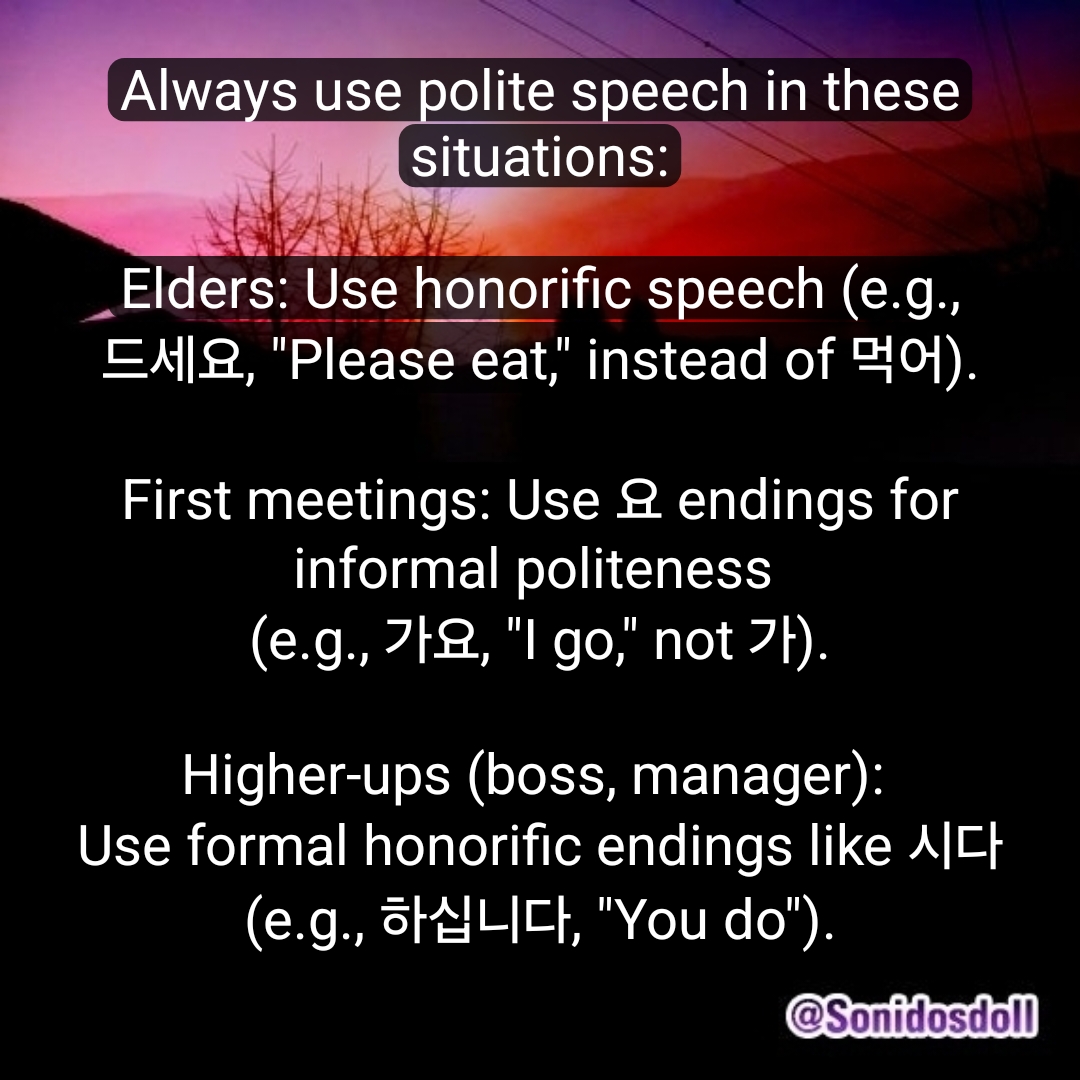한국어 Korean
Korean culture has a speech level system to show respect based on hierarchy
sonidosdoll
2025. 4. 13. 15:13
반응형

다음과 같은 상황에서는 항상 정중한 말을 사용하십시오.
장로님들: 존경어를 사용하세요.
첫 만남: 비공식적 공손함을 위해 요 어미를 사용합니다(예: 가가 아닌 가요, "I go").
윗사람(상사, 매니저): 시다와 같은 격식을 갖춘 경어 어미를 사용합니다(예: 입니다, "You do").
da-eumgwa gat-eun sanghwang-eseoneun hangsang jeongjunghan mal-eul sayonghasibsio.
janglonimdeul: jongyeong-eoleul sayonghaseyo.
cheos mannam: bigongsigjeog gongsonham-eul wihae yo eomileul sayonghabnida(ye: gaga anin gayo, "I go").
wis-salam(sangsa, maenijeo): sidawa gat-eun gyeogsig-eul gajchun gyeong-eo eomileul sayonghabnida(ye: ibnida, "You do").
Always use polite speech in these situations:
Elders: Use honorific speech (e.g., 드세요, "Please eat," instead of 먹어).
First meetings: Use 요 endings for informal politeness (e.g., 가요, "I go," not 가).
Higher-ups (boss, manager): Use formal honorific endings like 시다 (e.g., 하십니다, "You do").

한국 문화는 사회적 위계질서를 바탕으로 존중을 표현하는 언어 수준 체계를 가지고 있습니다:
어른들과 당신보다 나이가 많은 사람들에게는 가벼운 언어를 피하고, 존댓말을 사용하세요
(예: 먹어 대신 "제발 드세요"라는 드세요).
누군가를 처음 만났을 때 비공식적인 예의를 위해 요 어미를 사용합니다(예: 가요, "I go").
더 높은 위치에 있는 사람들을 위해
(상사, 매니저), 시다와 같은 공식적인 존댓말 어미를 사용합니다 (예: 하십니다, "You do").
Korean culture has a speech level system to show respect based on social hierarchy:
For elders and people who’s older than you, avoid casual language; use honorific speech
(e.g., 드세요, "Please eat," instead of 먹어).
When you meet someone for the first time use 요 endings for informal politeness (e.g., 가요, "I go").
For people who’s in a higher position
(boss, manager), use formal honorific endings like 시다 (e.g., 하십니다, "You do").
When I first started learning Korean I couldn’t recognize the words from native speakers because the audio from the books were too slow and Koreans pronounce words differently. For example:
마시다. The 이 is silent when Koreans use words that have the 이 sounds while the books you can easily hear the 이 sound.
반응형